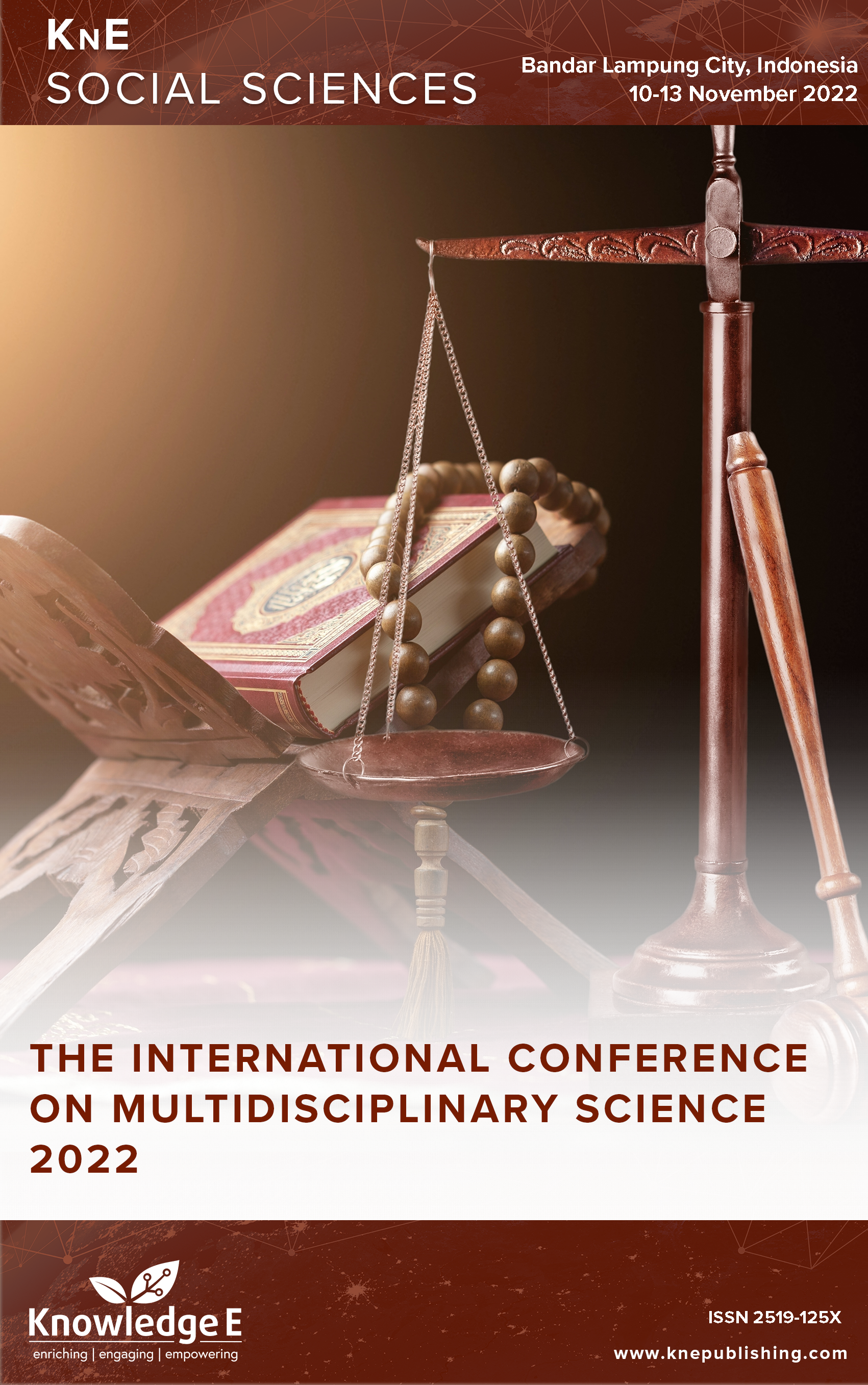Enhancing Religious Life for Positive Impact on Narcotics Offenders in Penalty Institutions
DOI:
https://doi.org/10.18502/kss.v8i16.14072Abstract
Religious behavior is a theological construction. Religious institutions are greatly influenced by factors including ignorance and ignorance of the human ability to deal with certain problems and the scarcity of resources that can provide satisfactory answers. Thus, religious behavior is a form of response or action against the teachings of religion that is adhered to or believed. Religion is one of the factors that can change a person to have a better personality, while it is also a life-guide to follow the right path. Religion can reassure one’s soul and mind psychologically and physically. Religious people perform religious activities based on the theological system. Fundamentally, the theological system will be maintained by its adherents. Religion refers to the behavior of someone who understands their God in various ways according to their socialization. Thus a psychological approach can be used in various ways, one of which is rehabilitation for narcotics abuse. Some narcotics abusers, according to research, have unfavorable mental conditions characterized by aggression, restlessness, and loss of self-confidence. To overcome these conditions they need services which can aid recovery both physically and mentally. Psychological approaches to Islamic studies can play a role in therapy through methods like prayer therapy, Al-Quran reading therapy and giving advice based on religious teachings. With the psychological approach used in rehabilitation it is hoped that it can help people who are struggling both physically and psychologically.
Keywords: Religious Life To Give, Narcotics Confidents
References
[2] Turner BS. Sociology of Religion. Daryanto translator. Yogyakarta: Student Library; 2013.
[3] Ancok D, Suroso FN. Islamic Psychology: Islamic Solutions to Psychological Problems. Yogyakarta: Learning Library; 1995.
[4] Supramono G. Indonesian Drug Law. Jakarta: Bridge; 2009.
[5] Jumaroh I. Development of Convicts’ Religious Diversity. Jakarta: Syarif Hidayatullah State Islamic University; 2016.
[6] Rakhmat J. Religion Research Methodology An Introduction. Yogyakarta: PT Tiara Wacana Yogya; 1989.
[7] Kartono K. [ Jakarta. PT. King of Grafindo Persada.]. Soc Pathol. 2007;1:
[8] Amin Abdullah M, et al. Yogyakarta Multidisciplinary Approach Religious Research Methodology. Research Institute of UIN Sunan Kalijaga Yogyakarta; 2006.
[9] Al-Barry Dahlany MY. Main Dictionary of Scientific Terms Intellectual Series. Surabaya: Target Press; 2003.
[10] Natasya M, Zul A. Jumadiah. The Role of Correctional Institutions in the Treatment of Narcotics Convicts Scientific. Journal of Faculty of Law Students ( JIM FH). 2021;4(3).
[11] Penny Naluria Utami. Justice for Prisoners in Correctional Institutions. Journal of De Jure Legal Research. 2017;17(3).
[12] Crapps RW. Dialogue on the Psychology of Religion and Religion. Yogyakarta: Canisius; 1998.

